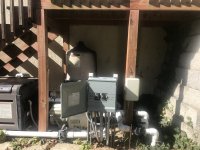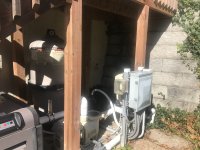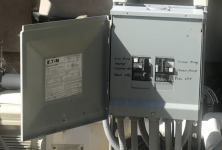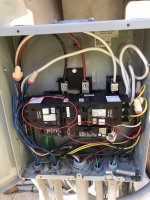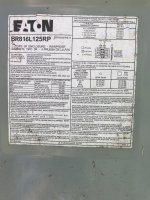I don’t know if this matter has come up before, but I wanted to get some thoughts. We have an outdoor area where all the pool equipment is located, including the electrical panel for the equipment. In the past three years we have experienced two breaker failures, one in the 220v pump circuit, and one in the 110v pool light circuit. Both were discovered when opening the pool up for the new season, and both were repaired by replacing the breaker. Someone suggested to me that I cover the panel in plastic during the winter months to keep it dry.
My concern is that covering it in plastic may provide an even greater wet and humid environment because of condensation formation and losing the ability of the panel to dry out after a rain or snow.
Maybe a small plastic or wooden piece directly over the panel which would act as a roof? Or is the plastic-wrap option a good one?
Another issue just occurred to me: there are many large ants that have accumulated and congregate in the bottom of the box in the beginning of each season. I spray ant killer and repellent and they don’t appear any more that season. Can insects affect the operation of breakers?
Any thoughts or solutions are appreciated, especially from an electrician with knowledge on this subject.
My concern is that covering it in plastic may provide an even greater wet and humid environment because of condensation formation and losing the ability of the panel to dry out after a rain or snow.
Maybe a small plastic or wooden piece directly over the panel which would act as a roof? Or is the plastic-wrap option a good one?
Another issue just occurred to me: there are many large ants that have accumulated and congregate in the bottom of the box in the beginning of each season. I spray ant killer and repellent and they don’t appear any more that season. Can insects affect the operation of breakers?
Any thoughts or solutions are appreciated, especially from an electrician with knowledge on this subject.
Last edited:


